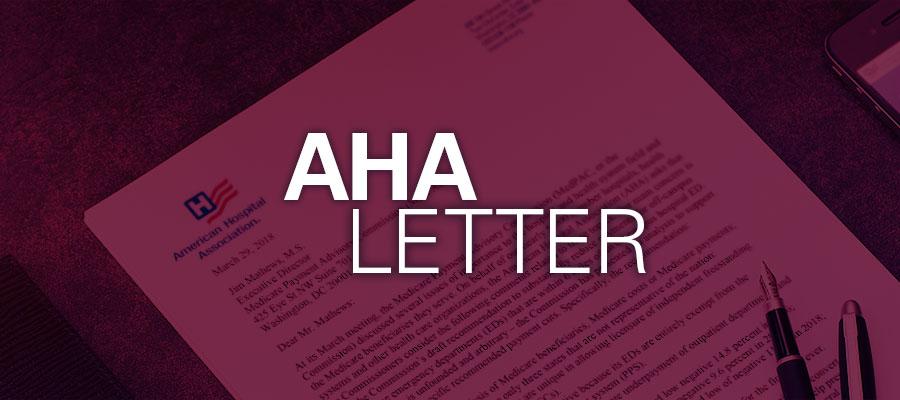AHA urges HHS to reinstate June COVID-19 Provider Relief Fund reporting requirements

The AHA today urged the Department of Health and Human Services to reinstate the COVID-19 Provider Relief Fund reporting requirements outlined in its June 19 FAQ that defined both expenses and lost revenues attributable to COVID-19.
AHA said the June requirements, which stated that lost revenue was “any revenue that … a health care provider lost due to coronavirus,” should replace those outlined in HHS’s Sept. 19 notice.
“Communities rely on America’s hospitals and health systems to be strong and resilient so they can provide essential public services, particularly during emergencies and public health challenges,” AHA said in a letter today to HHS. “The PRF funds have helped them continue to put the health and safety of patients and personnel first, and in many cases, ensure they are able to keep their doors open. HHS’s Sept. 19 guidance jeopardizes this position and will come at the cost of access to care for patients and communities.”
In a June FAQ, HHS stated that hospitals could “use any reasonable method of estimating the revenue during March and April 2020 compared to the same period had COVID-19 not appeared. For example, if [hospitals had prepared a budget] without taking into account the impact of COVID-19, the estimated lost revenue could be the difference between … budgeted revenue and actual revenue. It also would be reasonable to compare the revenues to the same period last year.”
However, on Sept. 19, HHS issued a new definition of lost revenue, stating that it was “represented as a negative change in year-over-year net patient care operating income.” It specified that after covering the cost of COVID-19-related expenses, hospitals generally only will be able to apply PRF payments toward lost revenue up to the amount of their 2019 net patient operating income.
“HHS’s new definition will require many hospitals to return PRF funds based on a new formula and set of metrics that are simply unfair and unrealistic,” AHA said.

